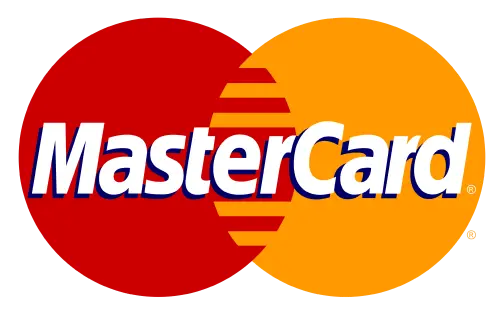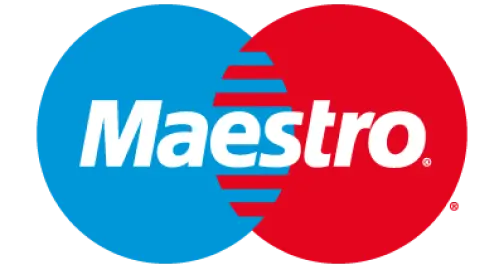Pot limit Omaha (PLO) is a variation of the popular card game Omaha. It is played with four cards dealt to each player and the objective is to make the best five-card hand using two of their own cards and three of the five community cards. In Pot limit Omaha, players can bet any amount up to the size of the pot at the time of the bet. This means that the size of the bets can increase quickly, and the betting structure is designed to limit the amount of money that can be wagered on each hand.
Pot Limit Omaha (PLO) is a thrilling variant of poker that has gained immense popularity in
online poker games. Here the players need to make the best possible winning hands from the
five cards that are dealt to them. The catch here in Pot Limit Omaha is that the player can
bet a maximum of the pot limit no more than that. For example, if the pot limit is Rs 100 and
no bets have been made previously in this range, then a player can raise the bet up to this amount. Now the player playing next has to raise the bet amount or can choose to fold.
Here Are the Basic Steps to Play Pot Limit Omaha :
- Blinds and Antes : Before the game starts, two players must post blinds to create an initial pot. The small blind is usually half the size of the big blind, which is the minimum bet for the first round of betting. The antes may also be used, which are additional forced bets from each player before the start of the game.
- Dealing : Four cards are dealt to each player face down. These are known as hole cards or the pocket cards.
- Preflop betting : The first round of betting begins with the player sitting to the left of the big blind. Players can either fold, call the big blind or raise the bet, up to the size of the pot.
- The flop : The three community cards are dealt face up in the middle of the table.
- Flop betting : The second round of betting starts with the player to the left of the dealer. Players can again fold, call, or raise the bet, up to the size of the pot.
- The turn : A fourth community card is then dealt face up on the table.
- Turn betting : The third round of betting starts with the player to the left of the dealer. Players can fold, call, or raise the bet, up to the size of the pot.
- The river : The fifth and the final community card is dealt face up.
- River betting : The final round of betting starts with the player to the left of the dealer. Players can again fold, call, or raise the bet, up to the size of the pot.
- Showdown : If two or more players are still in the game, the player with the best five-card hand using two of their own cards and three of the community cards wins the pot. If all players fold, the player who posted the big blind wins the pot without having to show their cards.
There are several variations of Pot Limit Omaha, that includes :
- High-Low Split : In this version, the pot is divided between the highest and the lowest hands.
- Six-Card Omaha : In this variation, players are dealt six cards instead of four and can use any combination of five of those cards to make their hand.
- Omaha Hi-Lo 8 or Better : This variation is similar to High-Low Split but with the additional rule that the low hand must be 8 or lower.
- Triple Draw Pot Limit Omaha : In this variation, players have three chances to draw new cards and improve their hand, with betting rounds in between each draw.
- Omaha Hi : This is the traditional version of Pot Limit Omaha, where the player with the highest hand wins the pot.
Each of these variations of PLO has its own unique rules, strategies, and challenges, making it important for players to understand the specifics of each game before they start playing.
Pot Limit, No Limit, Fixed Limit Omaha
Pot Limit Omaha (PLO), No Limit Omaha (NLO), and Fixed Limit Omaha (FLO) are three different betting structures in the popular card game of Omaha.
- Pot Limit Omaha (PLO) : In this variation, the maximum bet a player can make is equal to the size of the pot at the time of the bet. This means that the size of the bets can increase quickly, and the betting structure is designed to limit the amount of money that can be wagered on each hand.
- No Limit Omaha (NLO) : In this variation, there is no limit to the amount a player can bet, as long as they have enough chips in front of them. This leads to larger pots and a greater chance for big swings in the game.
- Fixed Limit Omaha (FLO) : In this variation, the maximum bet a player can make is fixed, usually at a set amount, and increases during different rounds of play. This betting structure provides a more controlled and predictable flow of betting, and is often used for beginners or for more structured games.
Here are some specific Pot Limit Omaha (PLO) rules that players should be aware of :
- Hand Requirements : Players must use exactly two of their four hole cards and three of the five community cards to make their best hand.
- Blinds and Antes : Before the game starts, two players must post blinds to create an initial pot. The small blind is usually half the size of the big blind, which is the minimum bet for the first round of betting. Antes may also be used, which are additional forced bets from each player before the start of the game.
- Betting Limits : The maximum bet a player can make is equal to the size of the pot at the time of the bet.
- Flop, Turn, and River : The game progresses with three community cards dealt face up in the middle of the table, followed by a round of betting. A fourth community card is then dealt, followed by the next round of betting. Finally, the fifth and final community card (the river) is dealt, followed by the final round of betting.
- Showdown : If two or more players are still in the game, the player with the best five-card hand using two of their own cards and three of the community cards wins the pot. If all players fold, the player who posted the big blind wins the pot without having to show their cards.
- Pot Odds : Players must be aware of pot odds and the odds of making their hand. This is an important factor when deciding whether to call, raise, or fold.
- Position : Players' positions at the table can impact their decision-making, as those who act later in a round have more information about the other players' actions.
- Pot Size : The pot size can greatly impact a player's decisions, as a large pot can make a losing hand more appealing, while a small pot may not be worth risking a big bet.
- Pot Management : Players must be aware of pot management and not over-bet or under-bet their hand, as this can result in losing chips or not maximizing their winnings.
The Pot Limit Omaha is certainly a competitive game that demands ever so more in order to win. Here are a few tips that will certainly help you in winning the Pot Limit Omaha games :
- Know the hand rankings : The first and foremost thing you need to know well is the different hand rankings as the hands in PLO are different from those in Poker.
- Know your position : Position is paramount in PLO, as it can make or break your game.
- Practice pot management : Manage your pot size and bet sizing effectively to maximize your winnings and minimize your losses.
- Play Smart and Aggressive : Always play to your advantage, enter the right pots, and know when to go all in with a strong hand.
- Know when to bluff : Bluffing is not a strong strategy to lean on in PLO, as players have more information to work with. So use the bluff scarcely.
- Read your opponent’s plays : Pay attention to the opponent's actions and their tendencies on the table. Getting an idea about their possible hand will give you an edge.
- Focus : Stay focused as it will allow you to make better decisions and avoid you from making unforced errors.
- Do not stop learning : Form a habit of developing new strategies and tricks that will elevate your game.
Find Out More About Poker on PlayerzPot

















